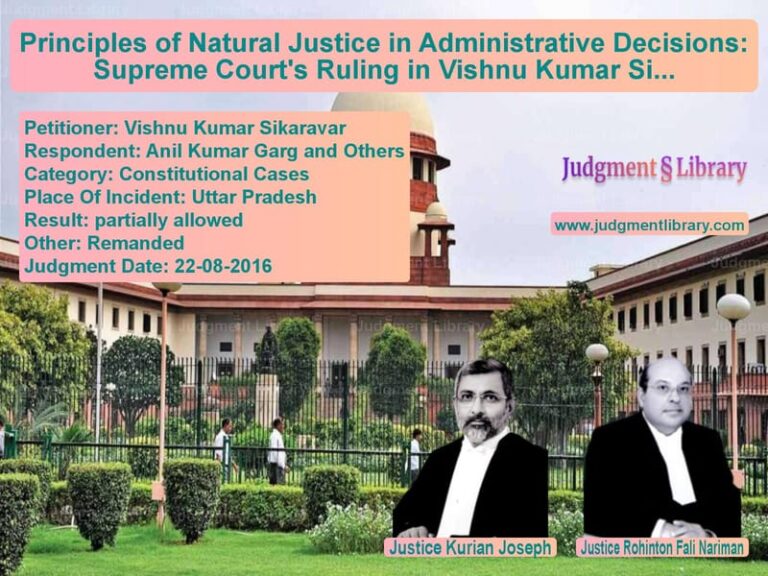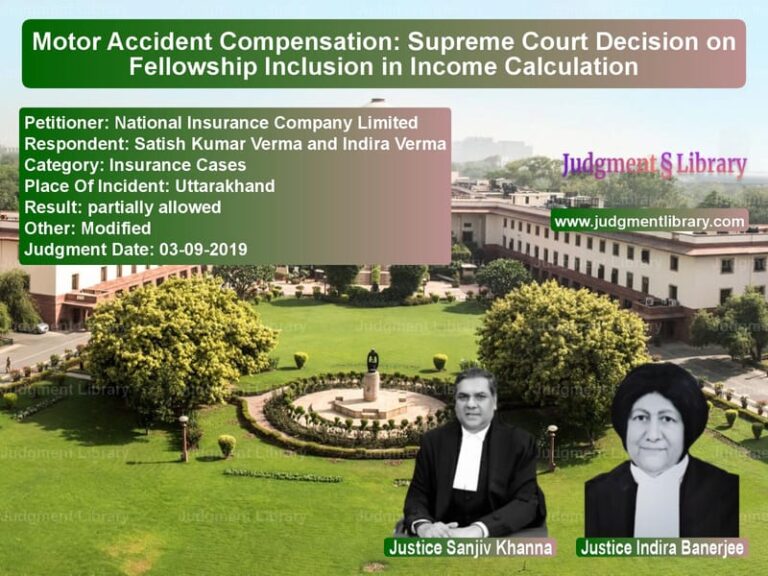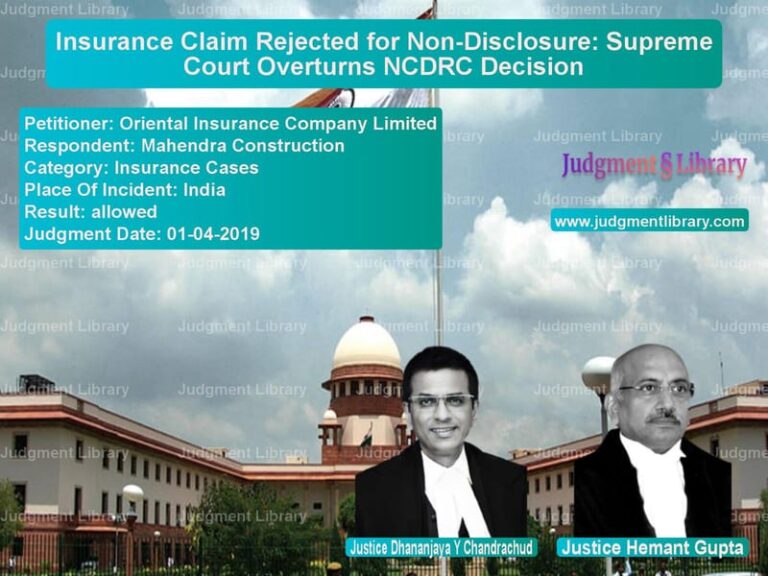Electricity Connection Dispute Resolved: Supreme Court Upholds Consumer Rights
Electricity service connections, especially for agricultural purposes, are essential for farmers and landowners. However, procedural hurdles and administrative delays often lead to disputes between applicants and service providers. One such case, D. Saravanan vs. Superintending Engineer, TANGEDCO, TNEB Distribution Circle & Others, reached the Supreme Court after the applicant challenged the denial of his agricultural electricity connection.
The Supreme Court, in its judgment dated April 12, 2018, ruled in favor of the appellant, emphasizing that procedural lapses by government authorities cannot be used to deny legitimate claims. This case highlights the need for administrative accountability and consumer-friendly policies in electricity distribution.
Background of the Case
The appellant, D. Saravanan, submitted an application on December 6, 2010, for an agricultural electricity service connection for his land measuring 5 acres. However, his application was returned by the Executive Engineer (Distribution), Tamil Nadu Electricity Board (TNEB), with the following observation:
“The application which you sent does not have the signature of VAO (Village Administrative Officer) and hence the same is returned back.”
After rectifying the defect, Saravanan resubmitted the application on March 21, 2011. However, despite his compliance, no action was taken on his application, prompting him to file a writ petition in the Madurai Bench of the Madras High Court.
High Court Proceedings
The learned Single Judge of the Madras High Court directed the authorities to consider the appellant’s application within a specified period. The order stated:
“It is open to the petitioner to fulfill the necessary conditions with regard to submission of application/rectify the defects, if any, in the application already filed, within a period of one month from today, and thereafter, the respondents shall consider the application of the petitioner in accordance with law and pass appropriate orders, if there are no legal impediments, within a period of one month thereafter.”
Despite this order, the authorities continued to delay the process. On February 15, 2017, the Executive Engineer informed Saravanan that his application was not submitted along with the required registration fee of Rs. 50. He was asked to file a fresh application along with necessary documents.
The appellant, aggrieved by this response, challenged the decision through a Letters Patent Appeal (LPA), but the Division Bench of the High Court reversed the Single Judge’s order and ruled in favor of the electricity board.
Key Legal Issues
The primary issues before the Supreme Court were:
- Whether the appellant’s application should be considered from the original date of submission (December 6, 2010) or from the resubmission date (March 21, 2011).
- Whether the electricity board’s rejection of the application due to the non-payment of the Rs. 50 registration fee was justified.
- Whether procedural lapses by government authorities can be used to deny service to citizens.
Arguments by Both Parties
Petitioner’s Argument (D. Saravanan):
- The application was initially submitted in 2010 and was resubmitted in 2011 after rectifying the defects pointed out.
- The authorities failed to communicate the requirement of a Rs. 50 registration fee at the time of the first rejection.
- It was unfair to deny the application based on a minor procedural lapse, especially since the fee was later submitted.
- The delay was caused by the authorities, and not by the petitioner.
Respondent’s Argument (TNEB & TANGEDCO):
- The application was incomplete as it did not include the Rs. 50 registration fee.
- The petitioner was a legal professional and should have been aware of the procedural requirements.
- The rules mandate that applications should be complete in all respects, including fee payment, before they can be processed.
Supreme Court’s Observations
The Supreme Court, led by Justices A.K. Sikri and Ashok Bhushan, analyzed the facts of the case and ruled in favor of the appellant. The Court held that administrative authorities cannot deny services based on procedural technicalities when they themselves fail to communicate necessary requirements.
Key Excerpt from the Supreme Court Judgment:
“When the application of the appellant was returned on 07.03.2011, only the defect pointed out was that the application did not have the signature of the Village Administrative Officer. No other defect was mentioned, nor was it pointed out that the Rs. 50 registration fee was missing.”
The Court further observed:
“Can the respondents be allowed to take the benefit of their own inaction or lapse, which is not in conformity with the statutory obligation cast on them? The answer obviously has to be ‘no’.”
Final Verdict
The Supreme Court ruled:
- The appellant’s application must be considered from March 21, 2011, the date of resubmission.
- The appellant was directed to submit a fresh demand draft of Rs. 550, which was earlier returned by the authorities.
- The authorities were instructed to process the application and intimate the appellant within three months about any further requirements.
Conclusion
This judgment reinforces the principle that government authorities must act in good faith and not reject applications on minor procedural grounds, especially when their own lapses contribute to the delay. The ruling ensures that citizens are not unfairly denied services due to administrative inefficiencies.
The Supreme Court’s intervention in this case highlights the judiciary’s role in protecting consumer rights and preventing bureaucratic hurdles from obstructing essential services like electricity connections. The ruling serves as a precedent for similar cases, emphasizing the need for fair treatment in administrative processes.
Petitioner Name: D. Saravanan.Respondent Name: Superintending Engineer, TANGEDCO, TNEB Distribution Circle & Others.Judgment By: Justice A.K. Sikri, Justice Ashok Bhushan.Place Of Incident: Tamil Nadu.Judgment Date: 12-04-2018.
Don’t miss out on the full details! Download the complete judgment in PDF format below and gain valuable insights instantly!
Download Judgment: D. Saravanan vs Superintending Engin Supreme Court of India Judgment Dated 12-04-2018.pdf
Direct Downlaod Judgment: Direct downlaod this Judgment
See all petitions in Public Sector Employees
See all petitions in Recruitment Policies
See all petitions in Transfers Cases
See all petitions in Judgment by A.K. Sikri
See all petitions in Judgment by Ashok Bhushan
See all petitions in allowed
See all petitions in Remanded
See all petitions in supreme court of India judgments April 2018
See all petitions in 2018 judgments
See all posts in Service Matters Category
See all allowed petitions in Service Matters Category
See all Dismissed petitions in Service Matters Category
See all partially allowed petitions in Service Matters Category







